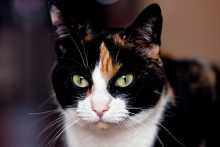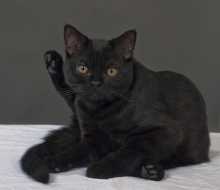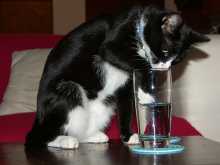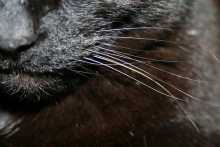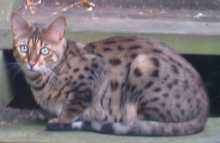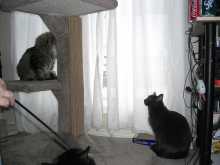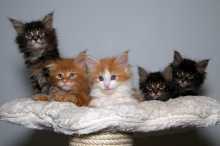Gotta keep 'em separated
I always had cats growing up, and we also often had smaller animals that had to be separated from the cats at all times. They quickly became disinterested in the guinea pigs -- I'm not sure if they knew the piggies were pets, as my dad assumed, or they just found them generally uninteresting -- but I also had a gerbil when I was 12, a mouse when I was 15, a dwarf rabbit when I was 17 and a rat when I was 20. And then of course there was the toad, the snake, and an assortment of goldfish and guppies...
We used to joke about the small animals being "cat TV," because the cats would sit there and watch them move about in their cages. (My gerbil had a little ball he used to run around in, and the cats would follow him around in that, too.) But we also knew we had to be very, very careful about keeping the cats separated from the smaller creatures. The exception was the guinea pigs -- like I said, the cats weren't interested in them for whatever reason, and we could let them run around without any fear of them being stalked by 10 pounds of feline fury.
I was reminded of this the other night when I introduced the cats and dogs to the newest (if temporary -- though they don't know that) addition to the household. We are keeping the turtle's travel tank on the kitchen counter, and within moments our more aggressively playful cat, Ivan, was up there next to it, watching. He spent most of the first evening on the counter, actually. Our more playful dog was also extremely interested, and spent quite some time looking and sniffing (she is big enough to get her nose up to the edge of the counter).
Putting the turtle in the bathtub the next day to allow him to stretch his legs, I realized I was going to have to keep the bathroom door shut when he was in there. What clued me in? The fact that, as I put the turtle in the tub and filled it with water, I found I had an audience: Two dogs and one cat, all checking out what I was doing. (The second cat is also interested but more timid.)
So I've been keeping the bathroom door shut during the turtle's swim sessions, and weighting the lid of his tank while he's in it. I don't know whether any of the pets would actually cause him any harm, but I think it's safest to assume that -- being predators -- they would, and to operate under that assumption!
